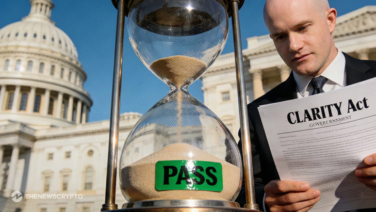- Legal battles involving Ripple and Coinbase may clarify cryptocurrency classification under the Howey test and impact SEC regulation.
- Crypto lawyer John Deaton contends that, historically, secondary market asset sales seldom meet the Howey test’s criteria.
- The SEC’s complaint against Coinbase lacks allegations of issuer marketing to general crypto traders on exchanges.
Ongoing legal battles involving Ripple and Coinbase may provide crucial clarity on whether cryptocurrencies should be deemed securities under the Howey test, according to crypto lawyer John Deaton. The outcomes could have profound impacts on SEC regulation.
Deaton argues that no case in the past 80 years has found a secondary market asset sale that satisfied Howey, even if the asset was originally sold as a security. This reasoning mirrors Judge Torres’ view in the Ripple case, which cited buyer anonymity and a lack of promotion to public markets.
Similarly, the SEC’s complaint against Coinbase lacks allegations of issuer marketing that reached general crypto traders on exchanges. Deaton believes this gives Coinbase grounds to dismiss charges related to exchange sales, though staking activities may still be disputed.
A partial victory could be game-changing for the industry by limiting the SEC’s authority over major exchange transactions. However, the Terra Labs case saw different rulings after assuming issuer promotion allegations as true per complaint stage procedures.
Deaton says Supreme Court intervention may be necessary for settlement
Ultimately, Supreme Court intervention may be necessary to settle regulatory authority over assets like XRP and whether Howey applies to secondary transactions. But the Solicitor General traditionally avoids cases that could reduce the power of federal agencies.
This presents a conundrum for SEC Chair Gary Gensler, who may be forced to pivot on crypto oversight but lacks appetite for a landmark Supreme Court hearing. The Ripple and Coinbase lawsuits could significantly shape the SEC’s next moves.
For crypto advocates, determining whether assets are currencies or securities is paramount for innovation. But expectations remain measured given the SEC’s aggressive stance under Gensler thus far. Still, decisive court victories could force the agency’s hand.








